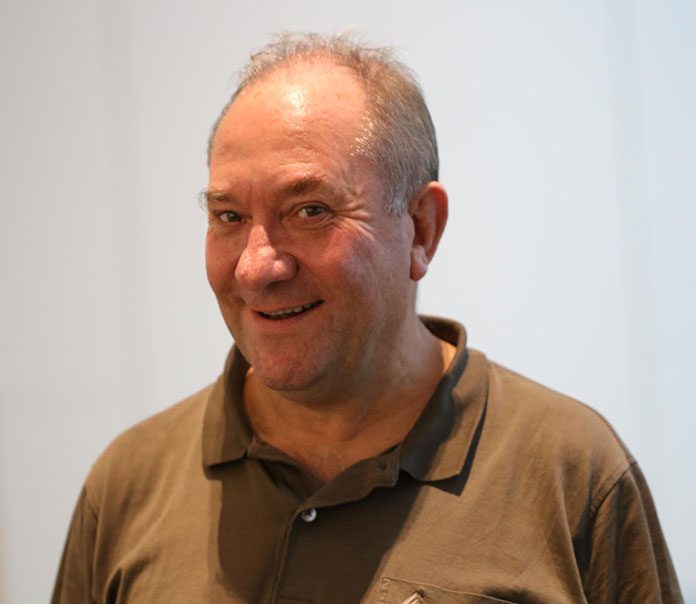
Dialogue in the Dark, HK is a unique experience where you can go for dinner, take part in interactive games with your partner, walk around the city or even celebrate your birthday. The twist is that throughout the experience you will be in total darkness. The aim of Dialogue in the Dark is not just to provide a unique immersive experience, but to bring blind and sighted people closer in a society where blindness is often ignored or misunderstood.
In today’s interview, DB has the pleasure of talking to Andreas Heinecke, the founder of Dialogue in the Dark. The concept originated in Germany but exhibitions and workshop centres are currently running in 21 countries around the world. Mr Heinecke’s vision is one of tolerance, empathy and dialogue and his concept not only promotes social inclusion, but has given jobs to thousands of blind people around the world.
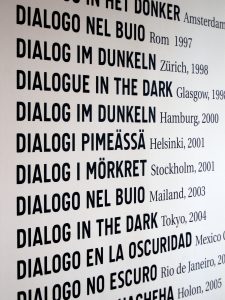 DB: What are some of the problems that blind people face today and how is Dialogue in the Dark working to tackle these problems?
DB: What are some of the problems that blind people face today and how is Dialogue in the Dark working to tackle these problems?
Well, of course we have to make a distinction between different countries. There are around 45 million blind people and 130-50 million people with visual impairment in the world so it is a huge community. Of course, the conditions in Africa are completely different to the conditions of those in Western countries. Generally speaking, blind people all over are still faced with problems of discrimination and are treated as second class citizens when it comes to work opportunities and education. A global phenomenon is that they are facing an awkwardness when people come into contact with them. The majority of people are not trained to understand what blind people need and equally what they don’t need. People struggle with the idea of being blind themselves and in this visual dominated age, the idea of having no sight is feared as a horrible condition and this fear often shadows open-mindedness. Dialogue in the Dark mitigates this awkwardness for people who don’t know how they should communicate and interact with blind people. We believe through personal encounter people’s attitude can change and this is our main objective.
DB: How has Dialogue in the Dark enriched your own perspective and life experience?
I have been in the dialogue business for almost thirty years. I would not have stayed for such a long time if there wasn’t a fundamental shift for my own life. I am not going to talk about the entrepreneurial efforts and challenges you face when setting up a business. On a personal level, my understanding of life has been enlarged on a massive scale. Often people think that when you are disabled, when something is missing, that you may not have a valuable life. I know that you can live a very valuable and beautiful life even without eyesight. When you encounter blind people, it becomes quite ordinary and not a big deal to be around blind and sighted people together on a daily basis. You start to understand that as visual people we might actually miss something in our understanding of life. It has broadened my horizons and my understanding of human life has been enhanced. Through Dialogue in the Dark I really found my mission and my meaning of life.
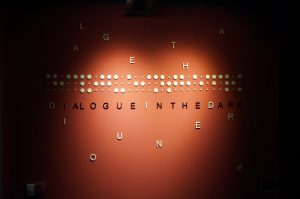 DB: During your PhD, you studied the philosopher Martin Buber’s “Principle of Dialogue” and consider the quote from his book “The only way to learn is by encounter” to be your mantra. What does this quote mean to you and how has it inspired your enterprise?
DB: During your PhD, you studied the philosopher Martin Buber’s “Principle of Dialogue” and consider the quote from his book “The only way to learn is by encounter” to be your mantra. What does this quote mean to you and how has it inspired your enterprise?
Well, I strongly believe that learning happens through two main components. On one side, it’s the encounter and Buber is the expert on what dialogue actually means. When you ask yourself what are the main factors of how you learn, I believe that in addition to the personal encounter and experience is also a very important component. You may learn theoretically but everything you do not learn through encounter and experience and you do not need, you forget quickly. Buber framed my understanding in a wonderful way in his books and that is why I think he is so important. Even after a long time this is still my mantra.
DB: A wide range of exhibitions are run around the world and people have the chance to take part in many different activities in the dark. Which activities do you feel have been the most successful at bringing blind and sighted people closer?
Well I hope Dialogue in the Dark is the best example of how it works. In a psychological sense and even from a business perspective, I assume we are the world market leader in dark business. It might be very easy to turn off a light and invite a few blind people but to continue and develop and to stay innovative, though the core product might change, is the main challenge. Dialogue in the Dark is the same as it was twenty or thirty years ago but the business approach has changed. There has been more research and there is a constant innovation process. It is a challenge to keep this pace. In terms of successful activities, it depends on the audience. Birthday Party in the Dark is tailored for kids. For me, the most important part is the one with the deepest and most profound educational component. The workshop for me has the highest potential. The exhibition might be the best seller but in terms of learning, the workshop is the best because you have more time for reflection. The workshop doesn’t stay only with the experience, it enables the next step where you transfer the experience into understanding.
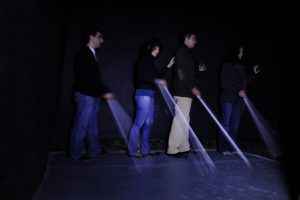 DB: Dialogue in the Dark is just one element of your social enterprise. You also run Dialogue in Silence and Dialogue with Time. Can you tell us a little bit about these projects and why you decided to expand?
DB: Dialogue in the Dark is just one element of your social enterprise. You also run Dialogue in Silence and Dialogue with Time. Can you tell us a little bit about these projects and why you decided to expand?
There are many reasons. On one hand, it is quite tricky to rely on just one product. It is better for stability to have multiple products. We wanted to create products with the same intention – to mitigate the gap between people who usually do not have the opportunity to meet and to exchange in an open-minded way. Similarly, we wanted to create occupations for people who don’t have easy access to the labour market. These are the two main objectives we are trying to pursue. So, we thought about the daily situations of people with hearing impairment or of those who are seventy, eighty or ninety years old – who equally are not seen as potential for the labour market. We saw there was huge potential to pursue the same mission. In a nutshell, we wanted to have better stability, so that in case the market for the Dark declines, we can continue our mission. Secondly, we wanted to emphasise the potential of people, whom like the blind, might not be recognised as talents but are instead seen as a burden for society.
DB: Dialogue in the Dark has received many international awards and has become one of the most successful social franchises in the world. When you first came up with the concept, did you anticipate that the project would be such a success?
When I started there was not an anticipation at all where we would be in thirty years. The objective was to stay around for a long time but there was not a strategy or long-term plan to begin with. I did not imagine that I would be in the dark for such a long time.
DB: What are your hopes for the future of Dialogue in the Dark?
The future starts here and now. We hope we can consolidate our running business. It is not all about progress and expansion. I have the privilege to work with a great team and I hope to keep our existing team. I hope to have more dialogues. It is clear at the end of the day, that it is important to have as many dialogues as possible. If I were to think big, my dream would be for Dialogue in the Dark to become a component of mainstream education, like math and biology and that every school to have a dark class. That would be a breakthrough.
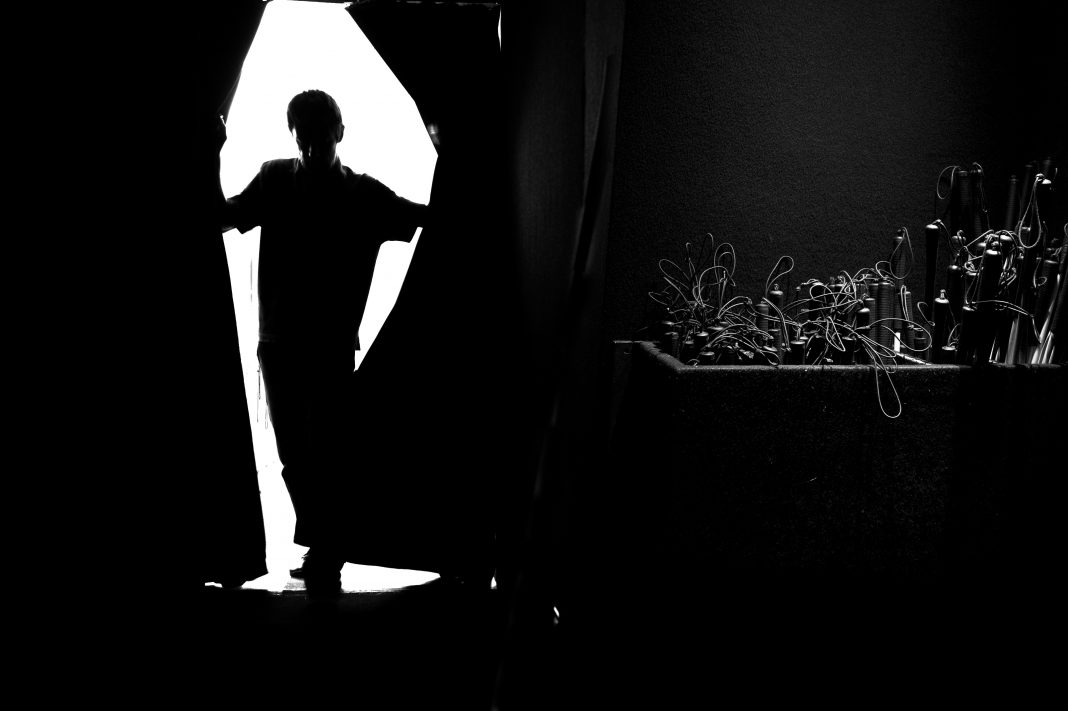
http://www.dialogue-in-the-dark.com/
www.dialogue-se.com
https://www.facebook.com/dialogueinthedark
https://twitter.com/dialoguese





